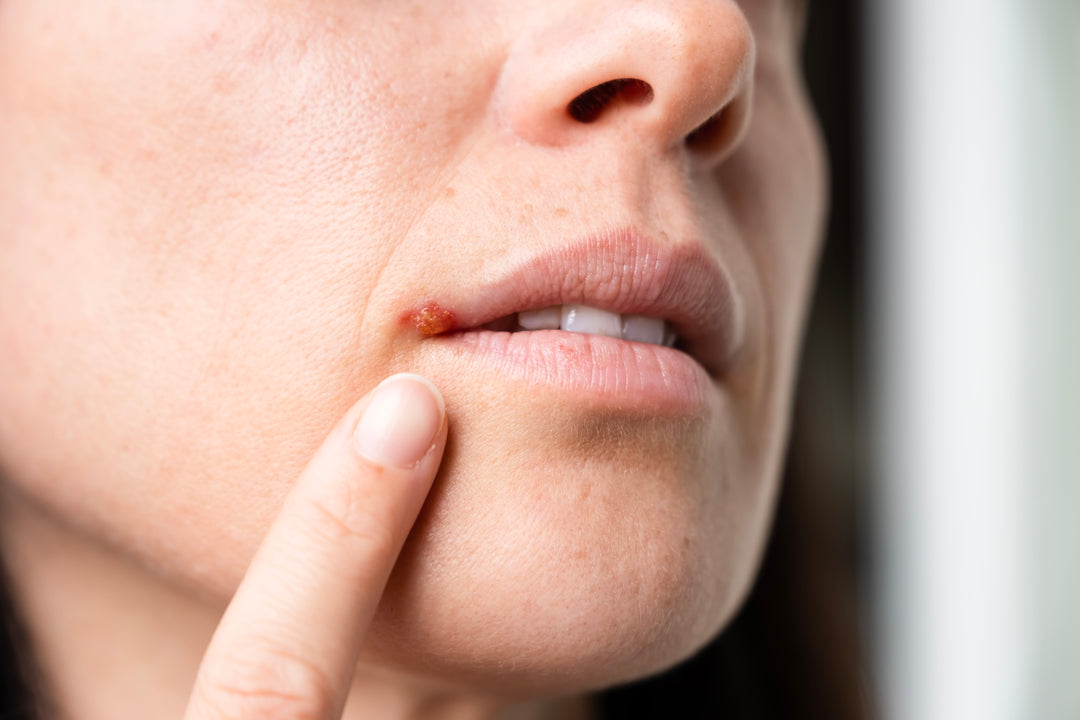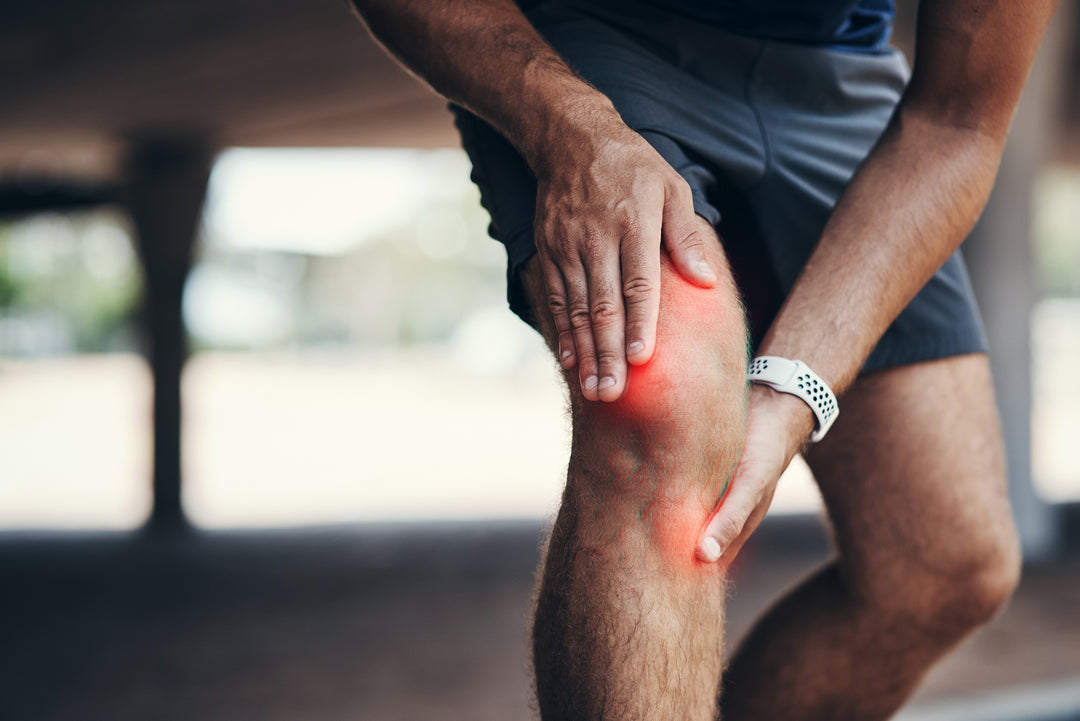Is There an Herbal Supplement for Anxiety?
Anxiety is a normal emotion that we feel when we're worried or nervous. For some people, anxiety can be more than just an occasional feeling – it can be a constant and overwhelming presence in their lives. If you suffer from anxiety, you may be wondering, is there an herbal supplement for anxiety?
Yes, there are natural ways to ease anxiety symptoms, including herbal supplements. In this post, we'll take a look at the best herbs for anxiety relief and how to take them safely so you can manage your symptoms and live a normal life.
Table of Contents
Is There an Herbal Supplement for Anxiety?
Prescription medicine is the most common treatment for anxiety disorders. But is there an herbal supplement for anxiety?
Herbal supplements are becoming increasingly popular as people seek natural ways to cope with stress and anxiety, minus the side effects of drugs. While there is no one-size-fits-all solution, some herbs may help to ease anxiety symptoms.
Here are a few to consider.
1. Chamomile
Chamomile is a daisy-like flower that has been used for centuries to calm nerves and ease anxiety. Chamomile tea is the most popular way to consume this herb, but it can also be taken in capsule form.
2. Passionflower
Passionflower is a climbing vine with beautiful flowers. It has been used traditionally to treat anxiety and insomnia.
Passionflower can be taken as tea or in capsule form.
3. Lemon Balm
Lemon balm is a member of the mint family and has a lemon-like scent. It has been used to calm nerves and reduce anxiety for centuries.
Lemon balm can be taken as tea or in capsule form.
4. Kava Kava
Kava kava is a root from the South Pacific that has traditionally been used to treat anxiety and insomnia.
Kava kava can be taken as tea or in capsule form.
5. Valerian
Valerian is a root that has been used for centuries to treat anxiety and insomnia. It is thought to work by increasing levels of a chemical called gamma-aminobutyric acid (GABA) in the brain. GABA is a neurotransmitter that has a calming effect.
Valerian can be taken as tea or in capsule form.
If you're considering taking an herbal supplement for anxiety, it's important to talk to your doctor first. Herbs can interact with other medications you're taking and may not be suitable for everyone.
Benefits of Herbal Supplements for Anxiety
If you're like most people, you probably feel anxious at some point in your life. Whether it's before a big event or during a work presentation, anxiety can be debilitating and make it difficult to focus on what's important.
But what if there was a way to ease your anxiety without having to rely on medications? Is there an herbal supplement for anxiety?
Herbal supplements have been used for centuries to treat a variety of ailments, and anxiety is one of them.
Herbs can be used to help treat mild and moderate mental health issues, such as anxiety and depression, without the negative side effects that can come along with prescription medications.
Complementary and alternative therapies, or CAM, are a type of treatment that is used in addition to traditional medicine. Herbal medicine is one popular form of CAM which applies plants to support optimal health or alleviate specific symptoms.
Herbal remedies have been used to treat mental illness for hundreds of years. They have recently gained more popularity in the United States in recent years.
A review of more than 100 studies on the effects of herbal remedies on depression and anxiety spanning over a 20-year period concluded that 45% of the clinical trials showed positive results and fewer side effects than prescription medications.
Before taking herbal remedies for anxiety and mental health, talk to your doctor to make sure there aren’t any interactions or risks with your current medication or health condition.
Keep in mind that the FDA does not regulate herbal remedies, so it’s important to choose only from reputable companies.
While there is no magic pill that will completely cure your anxiety, there are certain herbs that can help to ease your symptoms and allow you to better cope with stressful situations.
There are many different types of herbal supplements that claim to help with anxiety, but it's important to be aware of the potential risks before taking any of them. Some herbs can interact with other medications, so it's always best to speak with a healthcare professional before taking any supplements.
Additionally, some supplements may not be effective for everyone, so it's important to do your research to see if an herbal supplement is right for you.
Who Should Take Herbal Supplements for Anxiety Relief?
If occasional feelings of anxiousness are disrupting your daily life, it might be time to seek professional help. Some symptoms that may indicate the need for therapy are palpitations, obsessive thought patterns, insomnia, and distractibility.
Panic attacks can accompany physical symptoms such as rapid heart rate, dizziness, nausea, and numbness.
Medication and psychotherapy are both effective in treating anxiety disorders. Cognitive Behavioral Therapy (CBT) is a technique often used for anxiety and has been shown to have lasting effects. However, medication can also be helpful, and some people prefer it to other options.
Complementary and alternative medicines (CAM) such as yoga, hypnosis, meditation, and vitamins and dietary supplements can also help reduce your anxiety and stress.

(Source)
Herbal supplements may be helpful for the following patients:
- People with nutrient deficiency. Studies have found that low levels of vitamin D and magnesium are linked to anxiety and that taking these nutrients in supplement form may improve both your vitamin status and your symptoms of stress.
- People who do not respond to therapy. Those who have not gotten adequate results from traditional treatments for anxiety and those who have not had success with medication may choose to try alternative or adjunct therapies such as herbal or dietary supplements.
- People who are resistant to medication. Medication for anxiety can have some nasty side effects, making it difficult for people to take it regularly. Some supplements may help with less severe symptoms of anxiety.
- People with occasional and mild symptoms of anxiety. Ashwagandha has been shown to reduce stress and anxiety in healthy individuals. However, it may not be as effective for those with severe or chronic anxiety disorders.
The effectiveness and safety of different dietary supplements are still being researched, so it’s important to work with a healthcare professional to determine what’s right for you. The effect of a dietary supplement on an individual can vary widely, so while one consumer may find a relaxation-inducing product to be helpful, another may perceive it as energizing.
Many herbs have side effects and should be used with caution. Most studies on their effectiveness are short-term and we don’t know about their safety for long-term usage.
How to Take Herbal Supplements for Anxiety Safely
When it comes to anxiety, there are a lot of different herbal supplements that can be helpful. However, it's important to make sure that you are taking them safely.
Here are a few tips.
1. Consult with a healthcare professional before taking any herbal supplements.
This is especially important if you are taking any other medications, as they could interact with the supplements.
2. Start with a low dose and increase gradually as needed.
Some people may find that they only need a small amount of an herbal supplement to help with their anxiety, while others may need to take a higher dose.
3. Always follow the directions on the label.
This will help you to avoid taking too much of the supplement, which could cause side effects.
4. Listen to your body.
If you experience any negative side effects, such as increased anxiety or heart rate, stop taking the supplement and consult with a healthcare professional.
5. Store the supplement in a cool, dry place.
This will help to keep it fresh and effective.
Following these tips will help you to take herbal supplements for anxiety safely and effectively.
If you have any questions, be sure to consult with a healthcare professional.
Are There Any Side Effects of Taking Herbal Supplements?
Like any treatment, there can be side effects when taking herbal supplements.
It is important to talk to your doctor before taking any vitamins or herbs as they can interact with other medications you may be taking.
Some of the most common side effects of taking herbal supplements for anxiety include:
- Dizziness
- Nausea
- Headache
- Dry mouth
- Insomnia
- Restlessness
- Upset stomach
If you experience any of these side effects, it is important to talk to your doctor.
They may be able to adjust your dosage or recommend a different supplement.
FAQs About Is There an Herbal Supplement for Anxiety
What is the best herbal remedy for anxiety?
There is no one-size-fits-all answer to this question, as the best herbal remedy for anxiety may vary depending on the individual's specific situation and needs.
However, some commonly recommended herbs for anxiety relief include chamomile, lavender, lemon balm, passionflower, kava, and valerian root.
What is an all-natural supplement for anxiety?
There are many all-natural supplements for anxiety. Some of the most popular nutrients for anxiety relief include magnesium, vitamin D, saffron, Omega-3, chamomile, L-theanine, vitamin C, curcumin, CBD, and multivitamins.
What supplements help anxiety immediately?
- Vitamin D
- Vitamin B complex
- Magnesium
- L-theanine
- Multivitamins
- Omega-3
- Valerian root
Conclusion
Is there an herbal supplement for anxiety? If you're looking for relief, be sure to choose herbs that have been shown to be effective for anxiety and take them safely as directed.
With the help of herbal supplements, you can manage your anxiety and live a normal life.








